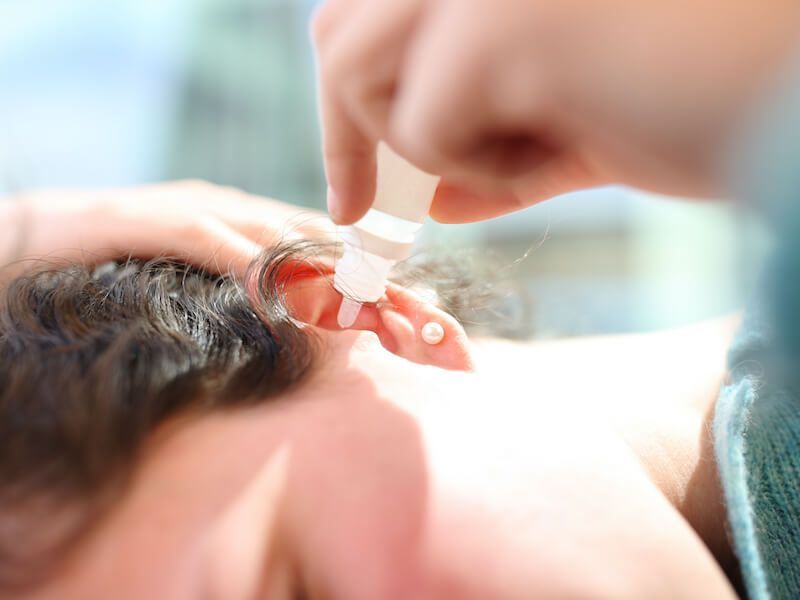What You Should Understand About Earwax Accumulation

Don’t neglect cleaning your ears. Whenever you say that, you inevitably use your “parent voice”. Maybe you even remember getting that advice as a kid. That’s the kind of memory that can remind you of simpler times as you wrap yourself in the nostalgia of childhood.
But it’s also good advice. Your hearing can be significantly impacted by an overabundance of earwax. And additionally, earwax can harden up inside your ear and become really hard to clean. In a nutshell, the cleaner you keep your ears, the better off you’ll be.
Excessive earwax? Eww!
We get it, earwax isn’t the most pleasing of substances. And we’re not going to try to change your mind about that. But it’s actually essential for your ear’s health. Earwax is made by glands inside of your ears and is then pushed out when you chew in order to keep your ears free of dirt and dust.
Essentially, the correct amount of earwax can help keep your ears healthy and clean. It might seem weird, but earwax doesn’t indicate poor hygiene.
An excessive amount of earwax is where the trouble begins. And, naturally, it can sometimes be a little bit difficult to tell when a healthy quantity of earwax begins to outweigh its advantages (literally).
What is the consequence of accumulated earwax?
So, what develops as a result of excess earwax? There are several issues that may arise due to out-of-control earwax or earwax that accumulates over time. Here are a few:
- Infection: Excess earwax can lead to ear infections. Sometimes, that’s because the earwax can lock in fluid where it shouldn’t be.
- Dizziness: Your inner ear is vital to your balance. So when excess ear wax causes your inner ear to have issues, your balance can be affected, causing dizziness.
- Tinnitus: Tinnitus is an affliction where you hear a phantom ringing or buzzing in your ears. Tinnitus symptoms can show up or get worse when earwax accumulates inside your ear.
- Earache: An earache is one of the most prevalent signs of excess earwax. It doesn’t have to hurt too much (though, in some cases it can). This is usually a result of the earwax producing pressure somewhere it shouldn’t.
These are only a few. Ignored earwax can trigger painful headaches. Too much earwax can interfere with the functionality of hearing aids. This means that you might think your hearing aids are having problems when the real issue is a bit too much earwax.
Can your hearing be impacted by earwax?
Well, yes it can. Hearing loss is one of the most common issues linked to excess earwax. When earwax accumulates in the ear canal it produces a blockage of sound causing a form of hearing loss called conductive hearing loss. The issue usually goes away when the earwax is removed, and usually, your hearing will return to normal.
But there can be sustained damage caused by excess earwax, especially if the buildup gets severe enough. And tinnitus is also usually temporary but when earwax blockage persists, permanent damage can cause tinnitus to become an enduring condition.
Prevention, treatment, or both?
It’s a good plan to keep an eye on your earwax if you want to protect your hearing. It’s improper cleaning, not excess production that causes buildup in most instances (a cotton swab, for example, will often compact the earwax in your ear rather than getting rid of it, eventually causing a blockage).
It will usually call for professional removal of the wax that has become solidified to the point that you can’t remove it. You’ll be able to start hearing again after you get that treatment and then you can start over, cleaning your ears the right way.


